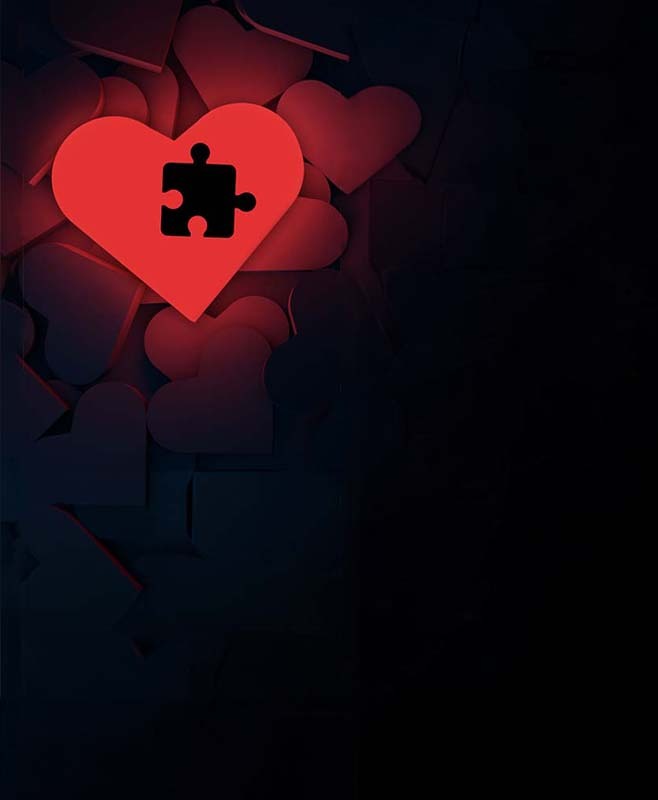
Should I Block My Ex During No Contact?
4 MIN READ
By Adam Smith - Coach, Entrepreneur


»
To Block or Not to Block: Ensuring the Quickest Recovery with No Contact
»
You will learn:

The subtle nuances of communication during no contact, and how seemingly insignificant actions such as blocking or unblocking an ex, can be interpreted in ways you may not have anticipated.

The impact of consistency during no contact and how your actions can either accelerate or hinder your personal growth and the potential reconciliation process.
You likely know that breaking no contact by reaching out to an ex can make your healing take longer. But what about blocking? It's not the same as sending a message or making a call, but it does send a quiet signal. This signal can tell your ex something really important. So, what's this secret message, and how can it change things for you? Let me explain:
What's the real impact of blocking your ex?

Blocking achieves one significant thing: it sends a signal. This signal suggests that you are still preoccupied with your ex, and it's often interpreted as an indication that you're upset or emotionally disturbed. Real-world feedback has illuminated this further. I've had heart-to-heart discussions with many clients and even their returning exes. The consensus? Being blocked typically comes off as an emotional outcry, a plea for attention. Their first thought isn't that you're over them, but rather that you wanted to elicit some sort of response from them.
Moreover, blocking alters the dynamics of curiosity: it transforms the curiosity-inducing uncertainty about you into a certainty: that you still remember them, you're still thinking about them, and you're actively taking the steps required to block them. This leads them to a rather confident conclusion: "Okay, they're still thinking about me. They're probably still waiting for me to make a move." Depending on your unique situation, this can delay the effectiveness of the no contact strategy. Is this a devastating mistake? Absolutely not. We don't even categorize this as a breach of the no contact rule. We refer to this as a "soft" break of no contact, where you haven't directly communicated, but your actions have conveyed a message. In conclusion, there are no distinct benefits to blocking your ex during the no contact period.
Moreover, blocking alters the dynamics of curiosity: it transforms the curiosity-inducing uncertainty about you into a certainty: that you still remember them, you're still thinking about them, and you're actively taking the steps required to block them. This leads them to a rather confident conclusion: "Okay, they're still thinking about me. They're probably still waiting for me to make a move." Depending on your unique situation, this can delay the effectiveness of the no contact strategy. Is this a devastating mistake? Absolutely not. We don't even categorize this as a breach of the no contact rule. We refer to this as a "soft" break of no contact, where you haven't directly communicated, but your actions have conveyed a message. In conclusion, there are no distinct benefits to blocking your ex during the no contact period.
Should you block them if dodging their calls or posts becomes too much?

Ensure that the sight of their name on your phone or their posts in your social media feed doesn't trigger a wave of memories and emotions that throw you off balance. This may be particularly true if an ex is intentionally trying to provoke a reaction from you. In such cases, maintaining the no contact rule can become difficult. However, there are various strategies you can use to minimize these triggers. For example, most social media platforms offer options to "mute" or "hide" specific users from your feeds. Similarly, some messaging apps allow you to mute notifications from particular contacts. This way, you can avoid the sudden shock of seeing their name pop up when you least expect it.
However, if their attempts at communication or provocations are so persistent that you can't dodge them, or if every interaction leads to anxiety and distress, you may need to consider more drastic measures. You can, of course, change your social media accounts or phone numbers...
But, at this point, it's worth pausing and asking yourself some serious questions. Is reconciliation with this person truly what you want or what's best for you? If their messages or social media posts cause you such distress, it's worth considering the potential harm that a renewed relationship with them might cause. Remember, sometimes the most self-loving action you can take is to choose your own peace and well-being over the allure of a past relationship.
However, if their attempts at communication or provocations are so persistent that you can't dodge them, or if every interaction leads to anxiety and distress, you may need to consider more drastic measures. You can, of course, change your social media accounts or phone numbers...
But, at this point, it's worth pausing and asking yourself some serious questions. Is reconciliation with this person truly what you want or what's best for you? If their messages or social media posts cause you such distress, it's worth considering the potential harm that a renewed relationship with them might cause. Remember, sometimes the most self-loving action you can take is to choose your own peace and well-being over the allure of a past relationship.
The impact of blocking on your ex's progression through no contact stages

Here's a breakdown of how your decision to block might influence their journey through these stages: During the no-contact period, your ex embarks on a sequence of emotional shifts, which for clarity, I've classified into five stages: Relief, Doubt, Anger, Nostalgia, and, eventually, Regret. These stages, although broad in their description, capture the essence of their emotional and psychological journey after the split. As you consistently stand by the no contact rule, your ex gradually shifts from one emotional territory to another, often resembling an emotional seesaw. Initially, they might bask in the Relief phase, appreciating the newfound space, free from the strains that might have burdened the relationship. But as the sands of time trickle, the feeling morphs into Regret, a stage where they might contemplate patching things up with you.
When you maintain distance from your ex, their thoughts inevitably drift back towards you. You both shared a deep connection, and such bonds never truly vanish. Whether in moments of joy or sorrow, their mind will wander to the times you shared. They will naturally grow curious about your life. Thoughts of you will magnify your perceived value in their mind.
However, and this is a critical point where many who attempt no contact for the first time, unfortunately, falter, these thoughts and memories must originate internally, from within your ex's mind. The act of blocking can hinder their natural progression through these stages. It might be perceived as a message, albeit indirect, that you're still nursing hurt feelings or holding onto anger.
This naturally brings up the next question: should you unblock them if you've already blocked them? Let's examine this question more closely.
When you maintain distance from your ex, their thoughts inevitably drift back towards you. You both shared a deep connection, and such bonds never truly vanish. Whether in moments of joy or sorrow, their mind will wander to the times you shared. They will naturally grow curious about your life. Thoughts of you will magnify your perceived value in their mind.
However, and this is a critical point where many who attempt no contact for the first time, unfortunately, falter, these thoughts and memories must originate internally, from within your ex's mind. The act of blocking can hinder their natural progression through these stages. It might be perceived as a message, albeit indirect, that you're still nursing hurt feelings or holding onto anger.
This naturally brings up the next question: should you unblock them if you've already blocked them? Let's examine this question more closely.
Should you unblock your ex if they're already blocked?

Unblocking, much like blocking, sends the same signal. In addition, it demonstrates inconsistency: your ex may interpret this as you having been angry, but are now regretting your decision to block them and are perhaps waiting for them to make the first move.
The most effective no contact is one that's consistent and continuous: your ex receives no information about you, not a single signal. If they experience a consistent silence from your end, it will pique their curiosity. They will start to feel nostalgic. Keep in mind, they won't have the opportunity to miss you if you're continually providing hints about what you're up to. The initiative to reconnect should emanate from them, and them alone. Any reminder, even something as minor as a block on social media or a messenger app, can slow down this process. It's analogous to opening the lid of a boiling pot: the steam escapes, and the process slows down. Your silence, in this context, will communicate much more than any words ever could.
And if your goal is to establish a consistent, unbroken period of no contact, there's a minimal advantage in unblocking them. Have faith, if they genuinely desire to reconnect with you, they will undeniably find a way, despite the presence of any digital barriers. There's no need to be consumed by the fear that they won't find a route to reach out - they absolutely will if they are truly determined to do so.
The most effective no contact is one that's consistent and continuous: your ex receives no information about you, not a single signal. If they experience a consistent silence from your end, it will pique their curiosity. They will start to feel nostalgic. Keep in mind, they won't have the opportunity to miss you if you're continually providing hints about what you're up to. The initiative to reconnect should emanate from them, and them alone. Any reminder, even something as minor as a block on social media or a messenger app, can slow down this process. It's analogous to opening the lid of a boiling pot: the steam escapes, and the process slows down. Your silence, in this context, will communicate much more than any words ever could.
And if your goal is to establish a consistent, unbroken period of no contact, there's a minimal advantage in unblocking them. Have faith, if they genuinely desire to reconnect with you, they will undeniably find a way, despite the presence of any digital barriers. There's no need to be consumed by the fear that they won't find a route to reach out - they absolutely will if they are truly determined to do so.
»
Key Points
»

During no contact, any direct or indirect communication, including blocking and unblocking, may likely be perceived as a sign of neediness

Maintaining a consistent approach is crucial to uphold the integrity of the no contact rule and to increase its effectiveness
»

Not knowing this astonishing secret practically guarantees the negative experience during no contact:
DISCOVER THIS RECOVERY-ACCELERATING SECRET
MOST POPULAR DOWNLOAD
Not feeling any better
Having relentless thoughts of an ex
Battling those near-impossible-to-resist urges to reach out





